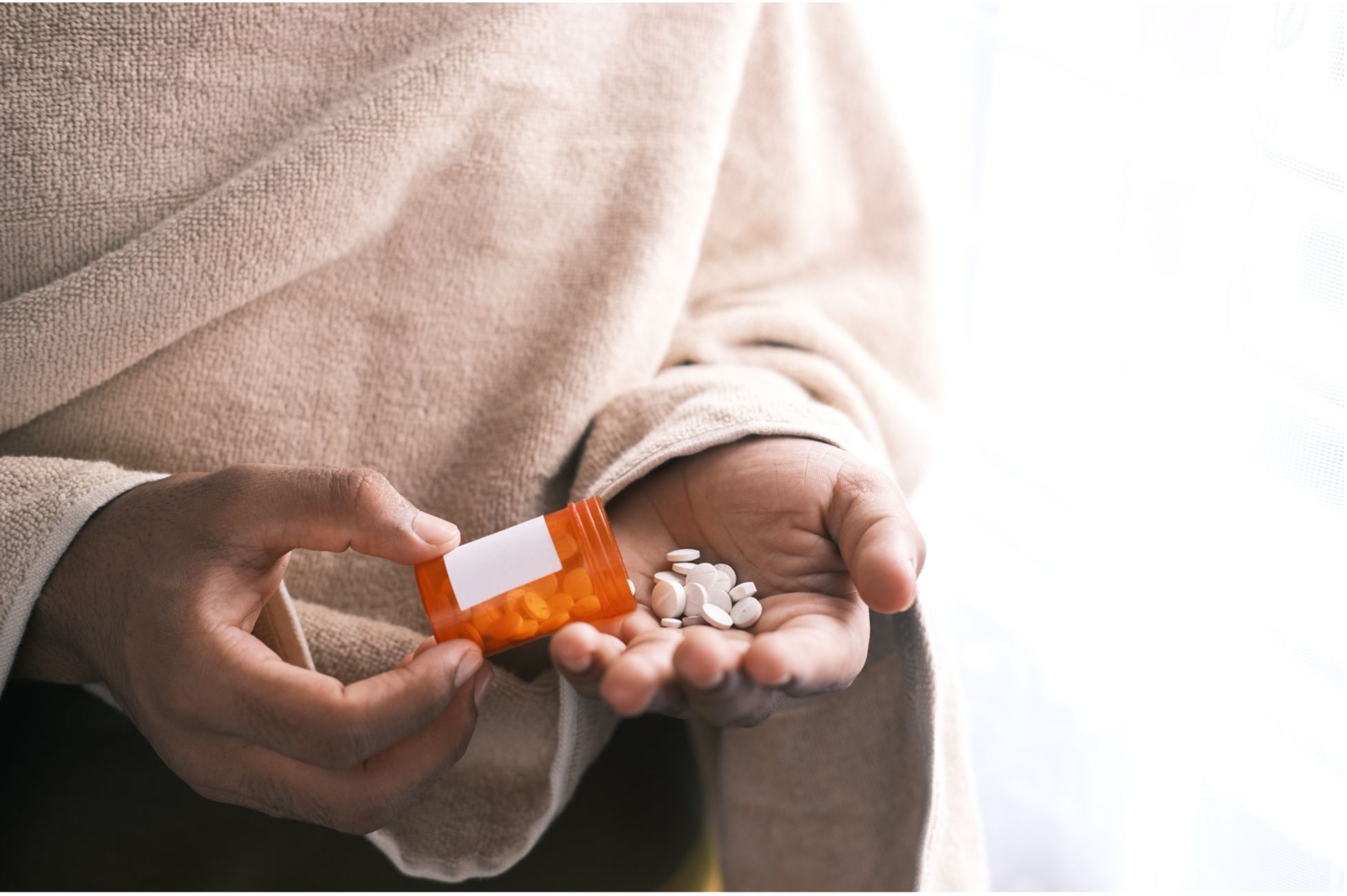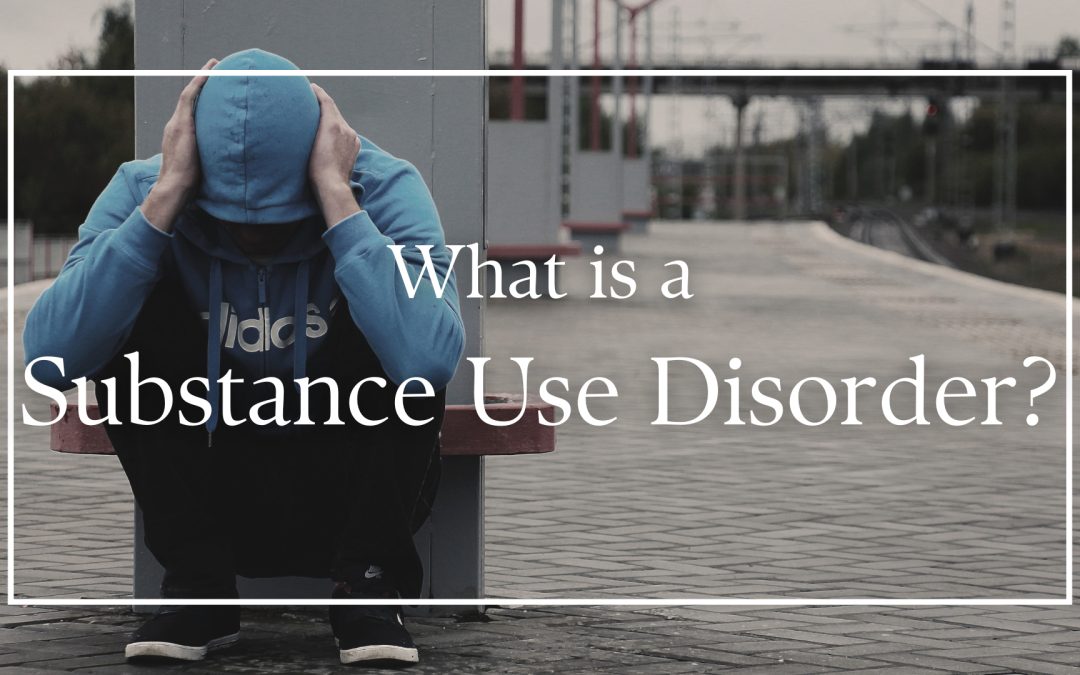According to the CDC, substance use disorders “are treatable, chronic diseases characterized by a problematic pattern of use of a substance or substances” which negatively affect most (if not all) aspects of a person’s life from physical and mental health to social functionality to everyday quality of life. According to the 2021 National Survey on Drug Use and Health (NSDUH), over 45 million Americans (aged twelve years or older) struggle with a substance use disorder – this means roughly one out of every seven people in the country have been diagnosed with an SUD. This is significant in revealing that regardless of age, gender, medical history, income, background or lived experiences may be, substance use disorders can affect anyone. Substance use and dependency are prevalent issues worldwide which, while a disheartening fact, means that those struggling are not alone.

Recovering from a substance use disorder is more than a simple issue of willpower and perseverance, but rather rewiring a brain that has been programed to need a substance regardless of what harm or adversities it may bring to its sufferer. And as different as the particular substance used may be when compared to the next, as are the igniting factors that first led someone to first use and the triggers that kept them returning to use. While no single aspect or event causes a substance use disorder, there are factors in a person’s life that can incite the development of one. This can include biological factors like genetics, mental disorders, physical alignments and age, as well as environmental aspects like a family history of substance dependency, trauma, stress, peer pressure and other cultural factors. Regardless of what substance is in question or the reasons that led to its misuse, there are many destructive consequences to continued substance use, which is why recovery is the only option if those suffering want to regain control over their lives.
Symptoms And Risks Of Substance Misuse

Substance use disorders span a wide breath of categories, and fluctuate in levels of severity. While the substance in question can vary greatly, from alcohol to other drugs (illicit or not) as well as activities like excessive online shopping, there are commonalities within the life-altering compulsions and indicators associated with the disorder. This lengthy and diverse list of behaviors and symptoms, indicative of someone struggling with a substance use disorder, include some of the following:
- The Inability to Control Use
- Prioritizing locating and using the substance above everything else in life
- Using more of the substance than one intended
- Being unable to reduce one’s use of the substance despite wanting to and/or continually trying to
- Spending a significant time recuperating from the aftereffects of the substance
- Social Difficulties
- Issues at home, work, or school due to one’s substance use
- Continuing use of the substance despite it causing strain on their relationships
- Reducing or discontinuing hobbies and activities as a result of substance use
- Having less money than usual with no explanation
- Avoiding old social circles and predominantly only associating with new groups, typically unknown to family and friends
- Engaging in Risky Behavior
- Using the substance even though it is causing or aggravating physical or mental health conditions
- Driving or operating machinery under the influence of substances
- Physical Indicators
- Straining to concentrate or remember things
- Frequent mood swings
- Anxiety and/or depression
- Developing a tolerance and requiring more of the substance each time in order to achieve the same effect
- Physically needing the substance in order to function in everyday life and prevent withdrawal
- Experiencing withdrawal symptoms while not using the substance
Types of Substances that can be misused

There is no singular reason as to why an individual becomes dependent on a substance and it is a predicament no one is safe from. For some, there may be genetic warning signs of substance use disorder that exist within your family tree, such a predisposition to alcoholism. Whereas others become vulnerable to substance misuse due to environmental or mental factors. But regardless of what led to the initial use, substance dependance manipulates each individual’s brain in a similar manner. By directly or indirectly targeting the brain’s dopamine (a neurotransmitter responsible for monitoring and regulating a person’s emotions, movement, reasoning, motivations and more by communicating messages between the nerve cells in your brain and body) receptors. When we act on beneficial behaviors, like exercising or eating a satisfying meal when hungry, our brains release a flush of dopamine, resulting in feelings happiness and enthusiasm, in order to reward and reinforcement said behaviors.
Substance use results in feelings of pleasure by causing an individual’s brain signals to misfire and release large quantities of dopamine into their system and consequently, fortify the habit. Once a substance use disorder takes hold, the brain’s chemistry is altered to crave the same sensations as were experience while under the influence or misusing the substance. Because of this unconscious desire for more of that “feel-good” hormone, substance use disorder is not limited to more conventional mediums like alcohol and tobacco but rather anything that causes pleasure and is subsequently used in excess. There is a large assortment of substances that can be misused, including but not limited to:
- Alcohol
- Cannabis
- Opiates and Narcotics
- Nicotine
- Illicit Drugs (such as methamphetamines, heroin, cocaine, psilocybin, LSD and others)
- Prescriptions medications (anxiolytics for managing anxiety and amphetamines intended to manage ADD are among the some of the most misused)
- Inhalants
- Caffeine
- Pornography
- Compulsive Buying
- Gambling
- Technology/Gaming/Internet
While several of these substances’ intended purposes are far from nefarious, when used often or in excess, habits can be formed. And from habits, substance dependency can develop. However, once struggling with substance use disorder, whether it be drug misuse, unrestrained gambling, a fixation with pornography, or something else, those suffering often feel as if they’ve hit the end of their road. But the story hasn’t concluded simply because of substance dependency – recovery is always possible.
Overcoming a Substance Use Disorder

Walking the road to recovery can be an isolating one, if not careful. It’s hard to overcome the feelings of guilt and shame that are often symptoms accompanying the recovery process. Once a recovering individual is operating with a clear mind, many feel they are unworthy of empathetic guidance as they navigate this grueling path. However, recovery is a life-long journey and in order to avoid the risk of returning to use, a network of multifaceted support and compassionate connections is necessary. This is where a certified recovery coach comes in. Allow a dedicated recovery coach, who understands the complexities of substance misuse and the impact it can have on a person’s life, mind and relationships – to help you realize and reach your maximum potential in life.
With years working in the field of recovery support in addition to lived experience, Maximum You Coaching provides clients with passionate support and substantial guidance tailored to your particular wants, needs and beliefs. Navigate the complexities surrounding the balancing of relationships and the recovery journey in a space where you are enlightened and encouraged by a certified professional who is in long-term recovery themselves. At Maximum You Coaching, you can get the help you need to significantly increase your odds for permanent recovery and finally get your freedom back.
If you or a loved one is close to finishing or has completed substance abuse or mental health treatment, Maximum You Coaching can provide continued support. Send an online message for more information or call today to schedule your appointment – both in-person or telephone session available.

